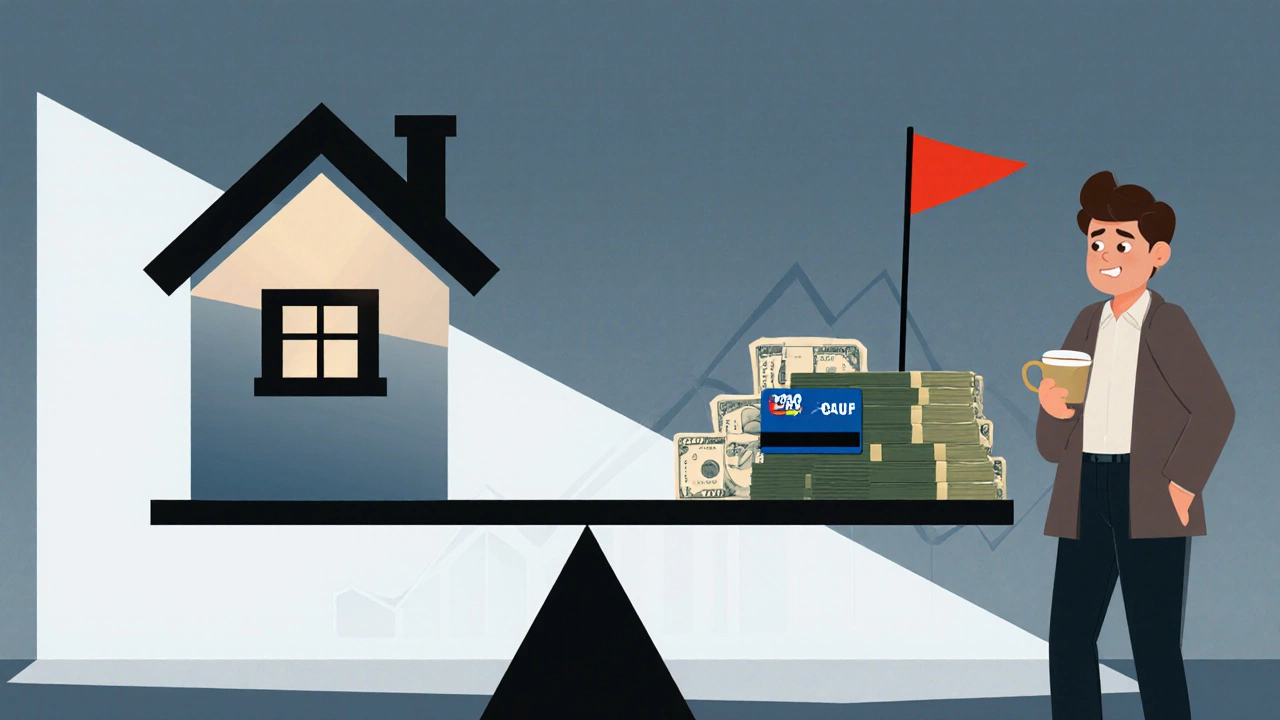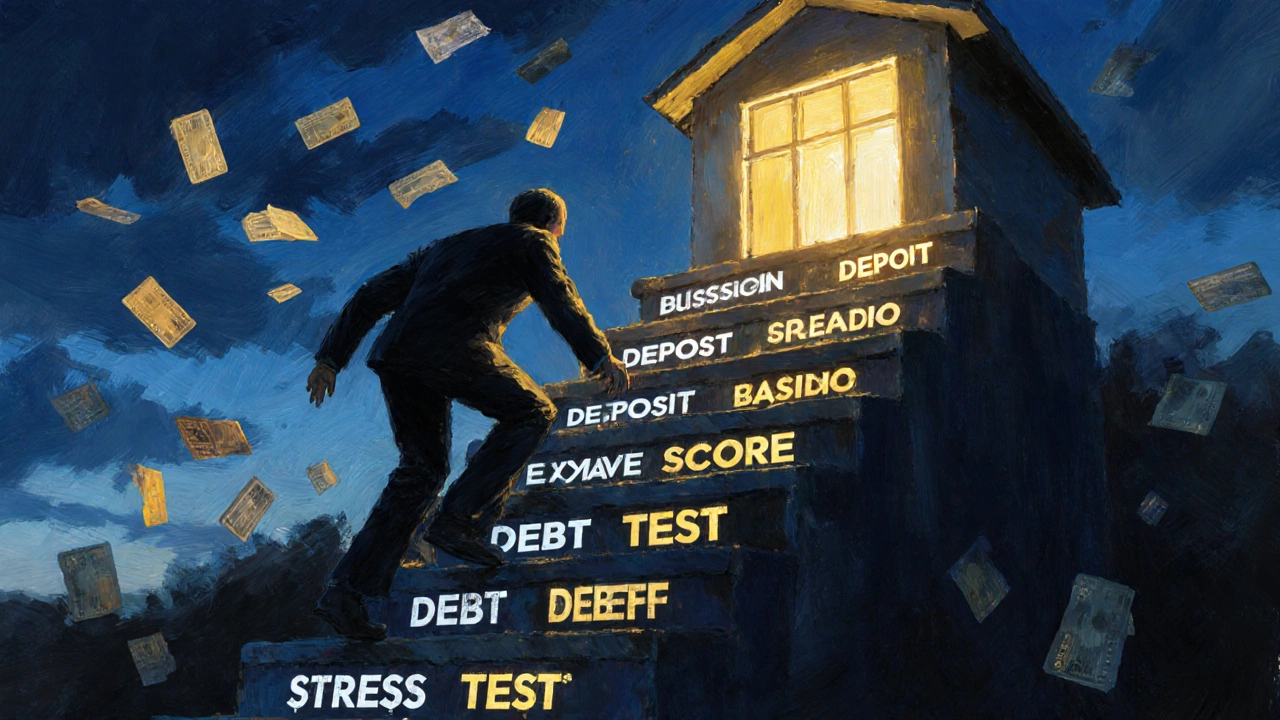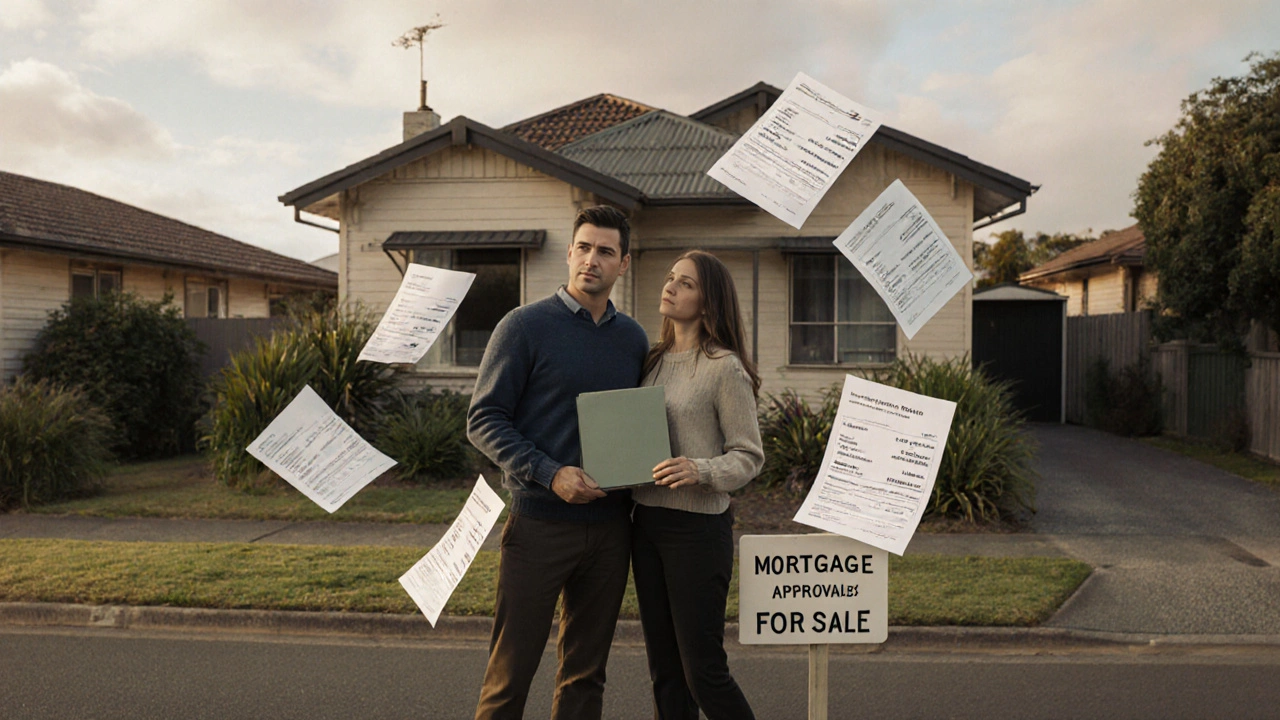If you’re aiming for a $250,000 home in New Zealand, you’re not alone. Thousands of first-time buyers are chasing the same goal. But here’s the hard truth: just wanting a house doesn’t get you one. Banks don’t care how much you dream-they care about how much you earn, how much you save, and how steady your income is.
What banks actually look at
Banks in New Zealand don’t just check your salary. They run a full financial scan. Your income is just one part. They also look at your living expenses, debts, credit history, and how much you’ve saved for a deposit. For a $250,000 mortgage, most lenders require at least a 10% deposit-that’s $25,000. That means you need to have that cash saved up before you even apply.
But the big number everyone asks about? Your income. To qualify for a $250,000 mortgage at current interest rates (around 7.5% as of late 2025), you’ll typically need a combined household income of at least $75,000 to $85,000 per year. That’s before tax. If you’re applying alone, you’ll likely need closer to $90,000.
Why so high? Because of the loan-to-income ratio. Most banks cap this at 5 or 6 times your income. So if you earn $80,000, the biggest loan you can usually get is $400,000 to $480,000. That sounds like more than $250,000-but you’re not just borrowing for the house. You’re also paying for insurance, rates, maintenance, and utilities. And the bank wants to make sure you can still eat, pay your phone bill, and handle an emergency.
How the serviceability test works
Every bank uses a tool called a serviceability assessment. It’s not just your salary. It’s your entire financial life. They add up your monthly expenses: rent (if you’re still renting), car payments, credit card minimums, groceries, childcare, gym memberships, even your coffee habit. Then they apply a stress test. That means they pretend your interest rate is 2-3% higher than what you’re being offered.
Let’s say you’re applying for a $250,000 mortgage at 7.5%. Your monthly repayment would be about $1,750. But the bank tests you at 9.5%-that’s $2,100 a month. Can you afford that? If your take-home pay is $5,000 and your other expenses are $3,800, you’re barely scraping by. You won’t pass.
Here’s a real example: A couple in Hamilton earns $82,000 combined. They have a $200/month car loan, $150 in credit card payments, and spend $1,200 on groceries and bills. After adding the stress-tested mortgage payment, their surplus drops to $300. The bank says no. They need to cut expenses or increase income.
What if you earn less than $75,000?
You still have options. But they require more planning.
- Save more for a bigger deposit. If you can save 20% ($50,000), you might qualify on $65,000 income. Less loan = less risk for the bank.
- Get a guarantor. A parent or close family member can guarantee part of your loan. This lets you borrow more on a lower income. But they’re on the hook if you default.
- Apply with a partner. Two incomes = higher combined income. Even if one person earns $40,000 and the other $45,000, you’re now at $85,000-easily within range.
- Look at smaller homes. A $200,000 home might be more realistic. That cuts your mortgage payment by $350 a month and lowers the income needed to $65,000.
Some first-time buyers in Auckland are turning to smaller sections or older homes in suburbs like Manurewa, Papakura, or Wiri. These areas have houses under $250,000, but they’re rare. You need to be ready to move fast.

Debt is the silent killer
Many people think their salary is the only thing that matters. It’s not. Your debts are just as important.
If you have a $10,000 student loan, that’s $200 a month. A $5,000 car loan? Another $150. A $3,000 credit card balance? That’s $100 minimum. Add them up, and you’re already paying $450 a month before your mortgage. That eats into your serviceability.
One woman in Tauranga had a $70,000 income but couldn’t qualify because she had $25,000 in debt. She paid off her credit cards and student loan over 8 months. Then she applied-and got approved.
Before you apply, get a free credit report from Equifax or Centrix. Look for any hidden debts or errors. Clear them. Even small ones matter.
What about government help?
New Zealand has the First Home Loan and First Home Grant, but they’re not magic. The First Home Grant gives up to $5,000 per person ($10,000 for a couple) if you’ve saved for at least 3 years and earn under $95,000 (or $145,000 for a couple). But you still need a 5% deposit, and the house price cap is $700,000 in Auckland.
The First Home Loan lets you borrow with just a 5% deposit-but you still need to pass the serviceability test. You can’t get around income requirements just because the government is helping.
Don’t assume the grant will save you. It helps with the deposit. It doesn’t fix a low income or high debt.

Real numbers: What you need to earn
Here’s a simple breakdown for a $250,000 mortgage in 2025:
| Deposit | Loan Amount | Interest Rate | Monthly Repayment | Minimum Income Needed |
|---|---|---|---|---|
| 5% ($12,500) | $237,500 | 7.5% | $1,660 | $80,000 |
| 10% ($25,000) | $225,000 | 7.5% | $1,575 | $75,000 |
| 20% ($50,000) | $200,000 | 7.5% | $1,400 | $65,000 |
These numbers assume no other debt and average living costs. If you have kids, live in Auckland, or have a car payment, add $10,000-$15,000 to your needed income.
What to do next
Don’t wait until you’re ready to buy. Start now.
- Check your credit report. Fix any errors.
- Track your spending for 3 months. Use a free app like MoneyHub or your bank’s tool.
- Calculate your debt-to-income ratio. Add up all monthly debt payments. Divide by your monthly income. If it’s over 30%, you need to pay down debt.
- Start saving your deposit. Even $500 a month adds up to $6,000 a year.
- Talk to a mortgage adviser. Not a salesperson. A fee-based adviser who works for you, not the bank.
Buying your first home isn’t about luck. It’s about preparation. The banks aren’t being cruel-they’re being cautious. And you should be too. If you can show them you’ve planned, saved, and reduced your risks, they’ll say yes.
What if you’re still denied?
Rejection isn’t the end. It’s feedback.
Ask the bank for a written reason. Did you fail on income? Debt? Deposit? Then fix that one thing. Maybe you need to wait 6 months, pay off a credit card, or get a raise. Some people wait a year, build their credit, and come back with a stronger application.
Don’t give up. Just don’t rush. The market won’t disappear. But your credit score and savings will grow.
Can I get a $250,000 mortgage on a $60,000 salary?
It’s extremely unlikely. At a $60,000 salary, most banks will only lend up to $300,000 maximum-but only if you have no other debt and a 20% deposit. With a $250,000 mortgage, you’d need a $50,000 deposit. Even then, your monthly repayments would eat up most of your income after expenses. Banks will likely say no unless you have a guarantor or significantly reduce your living costs.
Does having a partner help me qualify?
Yes, combining incomes is the most common way first-time buyers qualify. If one person earns $45,000 and the other $40,000, you’re at $85,000 combined. That’s comfortably above the $75,000 threshold for a $250,000 mortgage. Both incomes are assessed, and both credit histories are checked. Make sure your partner has a clean credit record-any late payments or defaults on their side can block your application.
Can I use KiwiSaver for my deposit?
Yes-if you’ve been contributing for at least 3 years. You can withdraw your own contributions, employer contributions, and investment returns for your first home. But you can’t use the government’s $500 kick-start or tax credits unless you’re also applying for the First Home Grant. KiwiSaver helps with the deposit, but it doesn’t replace the need for sufficient income to cover repayments.
What’s the minimum deposit for a $250,000 mortgage?
The minimum is 5%, which is $12,500. But that’s only possible with a First Home Loan, and you still need to pass the serviceability test. Most lenders prefer 10% ($25,000) or more. A smaller deposit means higher monthly payments and more risk for the bank. You’ll pay more in interest over time and might be forced to buy Lenders’ Mortgage Insurance (LMI), which adds thousands to your loan.
Do I need to be employed full-time?
Not necessarily, but your income needs to be stable. If you’re on a fixed-term contract, you’ll need to show at least 6-12 months of consistent work. Freelancers and self-employed people need 2 years of tax returns and proof of steady income. Part-time workers can qualify if their income is reliable and they’ve been in the role for over a year. The bank wants to see you’ll still be earning next year.
Buying your first home in New Zealand isn’t about getting lucky. It’s about being ready. Know your numbers. Know your limits. And don’t let anyone tell you it’s impossible-just hard. And hard is better than impossible.
